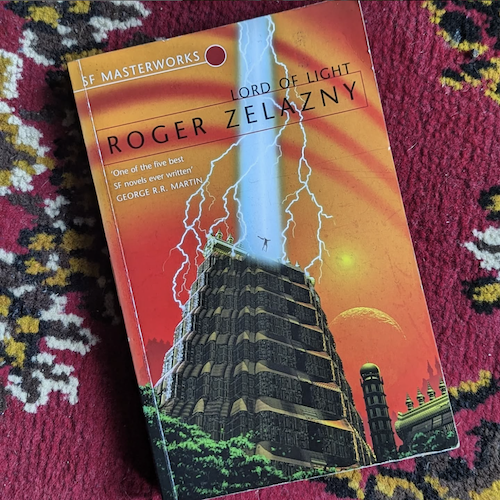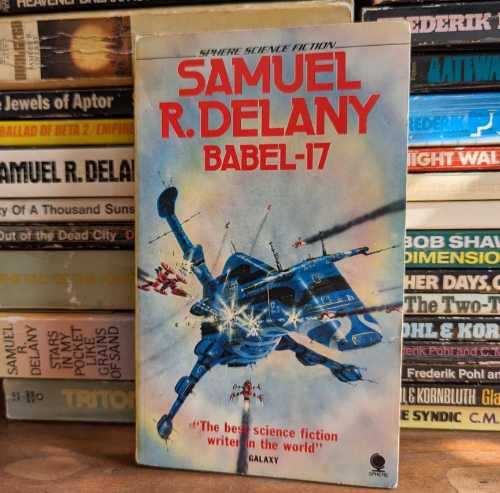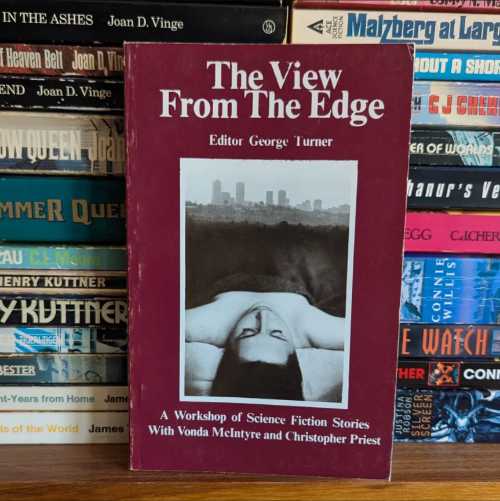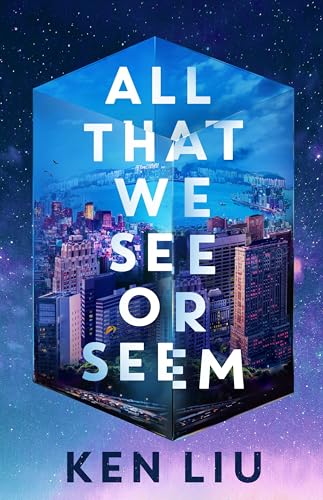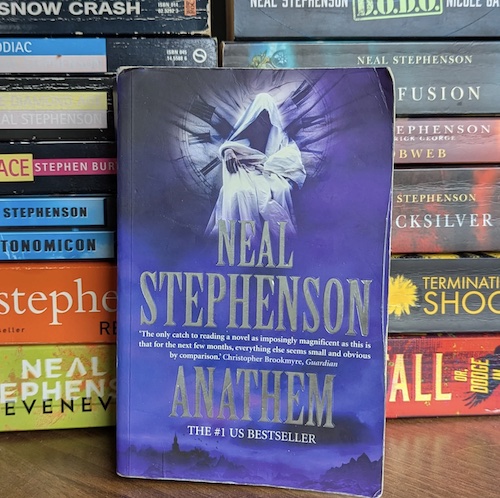Lord of Light
★★★★★On the surface, this book appears to be a fantasy built around Hindu mythos. Along the way, there’s a slow reveal of the science fiction underpinning of the story - the immortal gods are ancient colonists to this planet with advanced technologies that allow reincarnation and their powers. They rule over their descendants by suppressing technological progress, keeping them in a sustained dark age. One god is rebelling against this social order, seeking to tear down the deicracy and its worship by the introduction of Buddhism, science and technology.
The writing is flowery, with long philosophical dialogues as characters explore their motivations. Each episodic chapter, is a story in the lives of the rebel god as he moves to defeat the existing order over deep time. There’s a fair amount of allegiance swapping along the way, which, when combined with the multiple names for each character, and the time jumping, can create a fair amount of confusion for the reader.
The back story is partially revealed over the length of the novel - it peeks out from under the fantasy, offering the occasional morsel of tech or colonist history before ducking back out of sight. This is not the story of how this world came to be, which is a shame as these parts really appealed to my SF-biased tastes.
The novel won Zelazny the 1968 Hugo - at the time, it was almost certainly something unique, bringing Eastern cultures and religions into what is mostly a Western genre. However, this was also its weakness for me. I, unfortunately, know very little about these religions, and I expect that those who understand the cultural underpinning more deeply, as Zelazny clearly did, would get more out of the retelling.
Overall this was, in places, a tough read and in others, a delight. It’s an important work worth reading, but for me, it leans too much towards fantasy with the intriguing science fiction underexplored.
